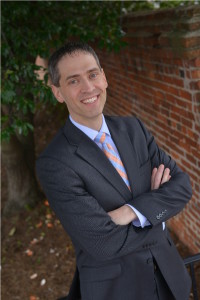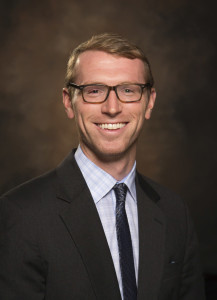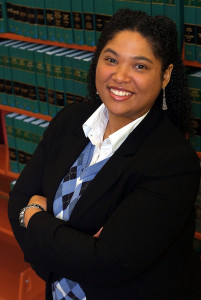ARC’s Advisory Council is a broad coalition of stakeholders that includes academics, civil rights defenders and private citizens. This volunteer council provides strategic direction, public policy insight, and leadership to ARC on matters pertinent to the consumer legal funding industry.
Members work to refine the ARC best practices, educate the public on legal funding, and ensure that consumers across the country have the option of choosing consumer legal funding.
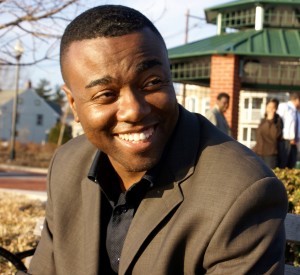 Reverend Charles Atkins, Jr.
Reverend Charles Atkins, Jr.
A Community Leader
Reverend Charles Atkins, Jr. is a community leader, social justice advocate, and minister in the New York Metropolitan area. Atkins is a pastor for the French-speaking congregation at the French Evangelical Church of New York. He also serves as a supervisory chaplain at the Garden State Youth Correctional Facility in Yardville, New Jersey where he has developed religious programming and provided counsel to youth since 2004. His interest in expanding access to legal funding is rooted in his deep commitment to expanding access to justice, and his commitment to serving urban communities.
Atkins previously served as an Associate Minister for Missions and Evangelism at Shiloh Baptist Church in Trenton, New Jersey where he coordinated missionary and humanitarian outreach both within the U.S. and internationally. He also was a leader of New Jerseyans Against the Death Penalty, a grassroots effort which successfully helped eliminate capital punishment in the state in 2007.
He is currently a Ph.D. Candidate for Practical Theology at the School of Theology and Religious Sciences at the Université de Montréal in Montreal (Quebec), Canada and obtained both his Master of Divinity Degree and Master of Arts Degree from Princeton Theological Seminary.
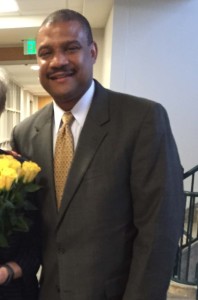 Terrence Cain, J.D.
Terrence Cain, J.D.
An Academic
Professor Terrence Cain is a legal scholar at the University of Arkansas at Little Rock’s William H. Bowen School of Law. He began teaching at the university in 2004 and has taught classes on employment discrimination, civil liberties, legal writing, and criminal procedure over the last decade. He joined the faculty in 2007 and has been published on the topic of legal funding. He also maintains a solo appellate practice, where he appears before the United States Court of Appeals for the Eighth Circuit, the Arkansas Supreme Court and the Arkansas Court of Appeals. His practice areas consisted chiefly of employment discrimination, domestic relations, and criminal defense.
Cain received with his law degree in 1999 from the University of Arkansas at Little Rock School of Law (UALR), graduating with honors. While a law student, Cain served as the associate notes editor of the UALR Law Review. He received a B.S. in Business Administration from the University of Arkansas in Fayetteville, cum laude.
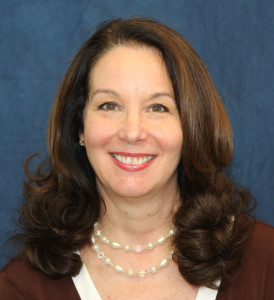 Becki Gray
Becki Gray
A Public Policy Leader
Becki Gray is a public policy leader from North Carolina who currently serves as the Vice President for Outreach at the John Locke Foundation. In her position, she provides information, consultation, and publications to elected officials, government staff and other decision makers involved in the state public-policy process. She offers commentary on television and radio shows across North Carolina, is a regular panelist on NCSpin, writes a monthly column for the Carolina Journal, and her op-eds have been published in newspapers across the state. Gray frequently speaks to civic and political groups about public policy and legislative issues.
Previously, Gray served as a staffer to the North Carolina General Assembly, spending over two years as Chief of Staff to the House Minority Leader. She earned an Art degree at Queens College in Charlotte, a Paralegal Certificate from Meredith College and has completed graduate work at UNC-Charlotte and UNC-Greensboro.
Gray serves on the North Carolina Museum of Art’s Board of Trustees. She resides in Raleigh, NC, and spends much of her free-time with her three children and four grandchildren.
An Academic
Professor Jeremy Kidd is a law and economics scholar at Mercer University’s Walter F. George School of Law with scholarly interests and a primary teaching focus in the areas of corporate and commercial law. He has been published on the topic of legal funding. Prior to his current appointment, Kidd taught business law courses at George Mason University School of Law and courses in economics at Utah State University and Weber State University. He also practiced as a real estate associate with Ballard Spahr Andrews & Ingersoll in Washington, D.C. and later as a litigation associate with Strong & Hanni in Salt Lake City, Utah. Kidd has clerked for the Honorable Ted Stewart on the U.S. District Court for the District of Utah and the Honorable Alice Batchelder, Chief Judge of the U.S. Court of Appeals for the Sixth Circuit.
Kidd graduated in 2007 with honors from George Mason University School of Law, where he was Executive Editor for the Journal of Law, Economics & Policy. He holds a B.A. in economics and political science and a Ph.D. in economics from Utah State University.
A Public Policy Leader
Greg Reed is an attorney with the Institute for Justice. He joined the Institute in 2013 and litigates cases protecting the rights of entrepreneurs and individuals from onerous, arbitrary, and unconstitutional government regulations. His litigation seeks to limit the size and scope of government power to ensure that all Americans have the right to control their own destinies as free and responsible members of society.
Prior to joining IJ, Reed was the research assistant to nationally syndicated columnist George F. Will.
Reed received his law degree from American University Washington College of Law in 2013. He graduated from Haverford College in 2006 with a Bachelor of Arts degree in Political Science.
An Academic
Victoria Shannon Sahani is a tenured Associate Professor of Law at Arizona State University Sandra Day O’Connor College of Law in Phoenix, Arizona. She has published articles in the UCLA Law Review, the Tulane Law Review, the Cardozo Law Review, the Tennessee Journal of Business Law, and the Journal of International Arbitration, as well as book chapters in books published by Cambridge University Press, Brill / Martinus Nijhoff Publishers, and Wolters Kluwer. The second edition of her coauthored book, Third-Party Funding in International Arbitration (with Lisa Bench Nieuwveld), will be published by Wolters Kluwer in late 2017. She received the 2014 Francis Lewis Law Center Prize for Excellence in Legal Scholarship and the 2015 Law Alumni Faculty Fellowship Award for Teaching. She is a Member of the Editorial Board of the Journal of Legal Education published by the American Association of Law Schools (AALS), the Executive Council of the American Society of International Law (ASIL), the Academic Council of the Institute for Transnational Arbitration (ITA), the ICCA-Queen Mary Task Force on Third-Party Funding in International Arbitration, and the Advisory Council of the Alliance for Responsible Consumer Legal Funding (ARC Legal Funding).
Prior to joining the academy, Professor Sahani served for five years as Deputy Director of Arbitration and ADR in North America for the International Court of Arbitration of the International Chamber of Commerce (ICC). In this capacity, Professor Sahani advised government attorneys, in-house counsel and law firm attorneys on all phases of arbitration, mediation, and ADR, including negotiating and drafting dispute resolution clauses, selecting neutrals and enforcing arbitral awards. She also served as the Deputy Director of the Arbitration and ADR Committee of the United States Council for International Business (USCIB), which serves as the United States National Committee to the ICC, in nominating arbitrators, mediators, and experts for ICC Cases.
Prior to joining the ICC, Professor Sahani served as an associate attorney with Pillsbury Winthrop Shaw Pittman LLP, where she specialized in complex tax credit and municipal bond financing arrangements for affordable housing and community development real estate transactions, as well as matters involving American Indian tribes. In the aftermath of Hurricane Katrina, she traveled to New Orleans in January 2006 to assist the Washington Lawyers’ Committee for Civil Rights Fair Housing Project with two housing discrimination claims.
Professor Sahani participated in the inaugural 2003-2004 class of the Harvard University Management Fellowship Program, during which time she served as External Relations Fellow in Harvard’s Office of Government, Community, and Public Affairs.
Professor Sahani holds a bachelor’s degree from Harvard University and a law degree from Harvard Law School. She is an active member of the bar in New York and the District of Columbia.
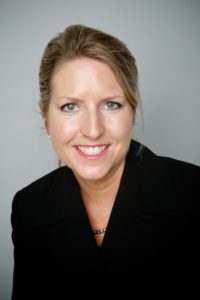 Zynda Sellers, J.D.
Zynda Sellers, J.D.
A Financial Education Leader
Zynda Sellers is the General Counsel for Money Management International (MMI), a tax-exempt 501 (c)(3) organization whose mission is to improve lives through financial education. MMI is an industry leader in not only financial education, but credit counseling, housing counseling, bankruptcy counseling, among other services. Sellers joined MMI in 2007, and provides legal advice on regulatory compliance, contract law matters, and litigation.
Seller’s commitment to education was apparent early in her career. Before attending law school, Ms. Sellers was a public school teacher in the Virginia Beach City Public School System, where she taught English and worked with underprivileged students to improve literacy skills.
Sellers earned her Bachelor of Arts degree in English from the Trinity College of Arts and Sciences at Duke University. She earned her J.D. from the George Mason University School of Law in Arlington, Virginia and is licensed to practice law by the Virginia State Bar.
A Consumer
Joe Williams has lived in the Houston, TX area for most of his life. He attended school in the northern Houston area and studied criminal justice.
Joe has felt a call to the police force since he was in grade school. He had the opportunity to take a trip to a police station with this school, which is when he discovered his passion for law enforcement. After finishing school, he achieved his dream and became a police officer in Houston, where he has served his community for nearly 20 years.
Joe serves his community by responding to calls, working with the public and keeping a watchful eye on the neighborhood. Additionally, he works will local establishment to ensure safety and protection for all the members of the community.

